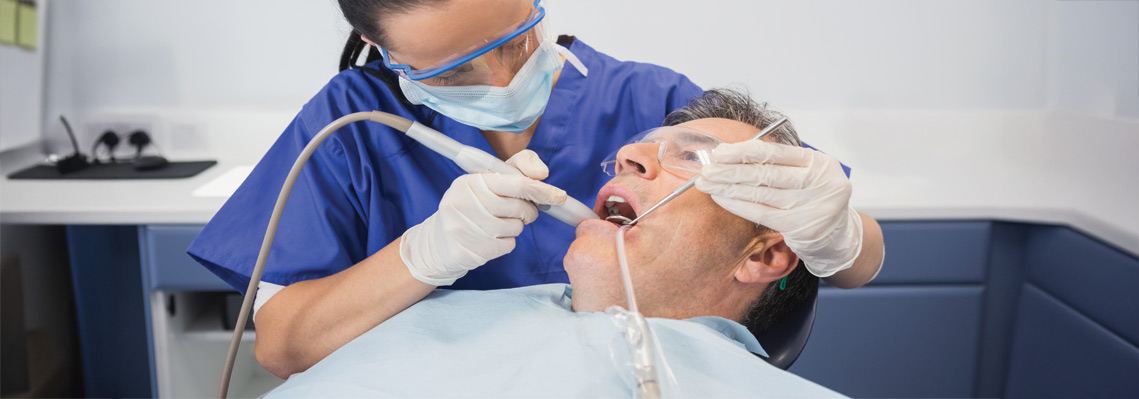A root canal is a common dental procedure designed to save a severely infected or damaged tooth. While it relieves pain, many patients fear the treatment due to its reputation for discomfort. This is where root canal sedation options come in, helping patients stay calm, relaxed, and pain-free throughout the procedure. By using sedation dentistry, a root canal becomes a far less intimidating experience.
In this article, we’ll explore the types of sedation for root canal, their benefits, safety considerations, and the availability of sedation dentistry.
Pain-free root canal? Yes, it’s possible – find out how today.
A] Why Sedation is Used in Root Canal Treatment
Dental anxiety and phobia are common reasons people delay treatment, especially when it comes to root canals. Sedation during root canal treatment is used to help patients feel relaxed, minimise discomfort, and overcome fear of the procedure. It ensures that patients have a calm and virtually pain-free experience while allowing dentists to work more efficiently. With growing awareness, dental sedation for root canal procedures has become increasingly popular in endodontics. Patients now have access to comfortable and modern care that makes saving their natural teeth a stress-free experience.
B] Types of Sedation for Root Canal
When it comes to making root canal therapy more comfortable, patients can choose from several types of sedation for root canal procedures:
Nitrous Oxide (Laughing Gas)
This mild sedation is inhaled through a mask and helps patients feel calm while remaining fully conscious. Its effects wear off quickly, making it possible to drive home after treatment.
- Oral Sedation (Pills): For patients with higher anxiety levels, oral sedation is taken before the procedure. It provides moderate relaxation, easing fear and discomfort while keeping the patient awake but drowsy
- IV Sedation: Intravenous sedation is a stronger option, often recommended for those with severe dental anxiety or phobias. Patients remain conscious but are in a deeply relaxed state, with little memory of the procedure.
- General Anaesthesia: In some complex cases, particularly in hospital settings, general anaesthesia may be used. Here, the patient is completely unconscious throughout the treatment.
By tailoring the right sedation method, dentists ensure that each patient’s needs and comfort levels are met.
C] Benefits of Sedation Dentistry for Endodontic Procedures
The benefits of sedation dentistry go beyond simply calming nerves. For patients undergoing root canals, sedation provides multiple advantages:
- Relief from Anxiety and Stress: Many people delay root canal therapy due to fear. Sedation helps them overcome these barriers, making treatment accessible.
- Pain-Free Comfort: With sedation and local anaesthesia, patients experience little to no discomfort, even during lengthy procedures.
- Time Efficiency: Sedation allows dentists to perform more work in fewer visits, reducing the overall treatment time.
- Helps Sensitive Patients: Those with a strong gag reflex, sensitive teeth, or severe dental phobia find treatment easier with sedation.
Overall, sedation dentistry for endodontic procedures ensures that patients receive essential dental care without the stress or discomfort often associated with root canals.
D] Is Sedation Dentistry Safe for Root Canals?
A common question patients ask is: Is sedation dentistry safe for root canals? The answer is yes, when administered by trained professionals. Before treatment, your dentist will review your medical history, allergies, and current medications to ensure the safest approach. During the procedure, your vital signs, including oxygen levels, heart rate, and blood pressure, are carefully monitored. While minor side effects like grogginess may occur, serious risks are extremely rare. With modern techniques and professional care, sedation during root canal treatment is considered both safe and effective for most patients.
E] Dental Sedation in Sunshine Coast
Patients looking for a comfortable root canal experience can benefit from sedation dentistry in the Sunshine Coast. At Oris Dental, we understand that dental anxiety is real, and we provide tailored sedation options to ensure every patient feels relaxed and at ease. Whether you require nitrous oxide, oral sedation, or IV sedation, our experienced team ensures a safe and stress-free procedure. If you’ve been putting off treatment due to fear, now is the time to consult a trusted dentist in Sunshine Coast at Oris Dental and enjoy gentle, patient-focused care.
F] What to Expect During Sedation Root Canal Treatment
During your appointment, sedation is administered according to the option chosen, whether it’s laughing gas, oral medication, or IV sedation. Once you’re comfortable, the dentist numbs the tooth and performs the root canal while you remain relaxed and pain-free. After the procedure, recovery depends on the type of sedation. With nitrous oxide, you’ll feel normal within minutes, while oral or IV sedation may require rest and avoiding driving for the rest of the day. Patients can feel reassured that treatment provides a smooth and anxiety-free experience from start to finish.
Relax, we’ve got you covered – book your gentle root canal today.
Conclusion
Thanks to modern root canal sedation options, dental treatments no longer need to be stressful. Sedation helps patients overcome fear, ensures comfort, and allows dentists to perform procedures more efficiently. Whether mild or strong, sedation makes root canals painless and manageable. If you’ve been delaying treatment, consult a qualified dentist in the Sunshine Coast today, and take the first step toward a healthier, pain-free smile with confidence.
FAQs
What is the Use of Sedation for Root Canal Therapy?
It helps patients relax, reduces anxiety, and ensures a pain-free experience during treatment.
Can You Be Sedated During Your Root Canal?
Yes, sedation options like nitrous oxide, oral pills, or IV sedation can be used depending on your needs.
What Sedation Is Used For Root Canals?
Common options include nitrous oxide, oral sedation, and IV sedation. In rare hospital cases, general anaesthesia may be used.

Dr. Adarsh Pisharodi
Dr. Adarsh Pisharodi, serving as the principal dentist at Oris Dental, brings a wealth of expertise spanning over 26 years to his esteemed practice. Specializing in cosmetic dentistry, dental implants, and orthodontics, he takes immense pride in rejuvenating countless smiles and instilling confidence in Sunshine Coast residents. As an esteemed member of the Australian Dental Association and esteemed dental societies, he remains steadfast in delivering exceptional care to his patients.















